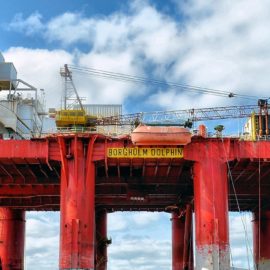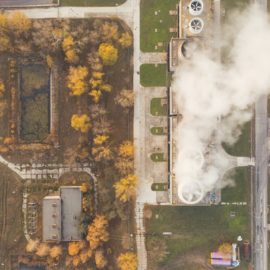
The answer is – oil is safer here than people. Just look at what the state legislature says and the bills they pass.
State Rep. Danny McCormick’s attempt during the Legislature’s session to have Louisiana designated a “fossil fuel sanctuary state” would never have passed constitutional muster. The state can’t just up and decide that its laws take priority over the country’s. But in calling out the absurdity of the Oil City Republican’s legislation, there’s a chance that some of us lost sight of the reality that Louisiana — to our great peril — has long been a fossil fuel sanctuary state. No, the state can’t protect Big Oil from the feds, but it protects it from everybody else — especially Louisianians who want the industry held accountable for its damage to the coast and its toxic effects on our air. And as accurate as it is to say that the state’s capitulation to the oil industry will destroy us, it’s even more accurate to say it has already destroyed us plenty. In “Katrina: A History, 1915-2015,” Tulane Professor Andy Horowitz explains how 90 years of bad decisions made the hurricane the catastrophic event it was. One of the biggest of the bad decisions was Louisiana celebrating the arrival of Big Oil just like Troy celebrated the arrival of that big horse.
nola.com
Horowitz went back to the 1920’s and the 1930’s when oil was first coming to the state and the wells were starting to be drilled.
Referring to the 1920s and ‘30s, Horowitz writes, “Southern Democrats like (St. Bernard and Plaquemines parishes’ District Attorney Leander) Perez, icons for almost an almost fascist level of government power, used that power in the service of the owners and shareholders of Standard Oil, Freeport Sulphur, and other transnational corporate interests. Working with local government, these firms rewrote Louisiana’s constitution and redistributed its mineral wealth. Even as Governor Huey Long promoted quasi-socialist reforms to make ‘Every Man a King,’ and Perez boasted of his parish’s ‘Utopia’ with full employment, they were transferring huge amounts of public resources to private markets. Once they yielded influence to the oil interests, local politicians never regained the reins of power.” Have Louisiana politicians ever demanded those reins? Even now, many act as if it’s important that Louisiana be thankful and deferential to those oil companies lest they storm off in a huff and leave oil in the ground. That deference dooms us. As Horowitz writes, Louisiana politicians signaled generations ago that they’re OK with private companies getting the profit from oil exploration and the public paying the cost.
The cost to us? The loss of wetlands which protected us from hurricanes. And Plaquemines Parish is a perfect example.
One could argue that the Perezes of the world didn’t know that giving the oil companies carte blanche in Louisiana would make Plaquemines Parish, as The New Yorker puts it, “among the fastest-disappearing places on Earth.” But today’s officials can’t plead ignorance. They have seen what has happened and what is yet happening. And they’ve certainly been told that oil and gas exploration bears the lion’s share of the blame for our land loss.
Does this make the legislature think about the damage to the state. Not at all! They still back oil.
Although the legislation naming Louisiana a sanctuary state for fossil fuels didn’t pass, legislation making it easier for natural gas companies to avoid penalties after leaks did. There’s also a new law that gives industrial facilities the ability to self-report environmental violations to the Louisiana Department of Environmental Quality, in exchange for reduced fines and the right to keep the public from knowing about the violations for two years. Lawmakers also passed laws against the solar energy industry, which doesn’t cause air pollution, and gave the go-ahead to chemical recycling, which reportedly does. Together Louisiana, Louisiana Budget Project, the Gulf Coast Center for Law and Policy and the Power Coalition for Equity and Justice have given the Louisiana Legislature an ‘F’ for its stewardship of Louisiana’s air, land and water. Erin Hansen, who helped create the score card, said that “it feels like we’re moving backward at a time when science tells us we can’t do that.”
We can make this designation but can we survive it?
Horowitz looks at the 90 years of decisions that preceded Hurricane Katrina’s destructiveness to challenge the common idea that the disaster was an acute, out-of-nowhere event or that it counts as an “act of God.” We’d do better to think of it as the consequences of allowing an industry to tear up the coast with impunity. And to be sure, there are yet consequences to come. Because the state’s leaders continue to make Louisiana a safer place for oil companies to operate than for human beings to live.
Oil is declining in the money it brings in but that is not a reason to stop backing it. The legislature will not look ahead or at what oil has caused. We need to wake up and vote.



